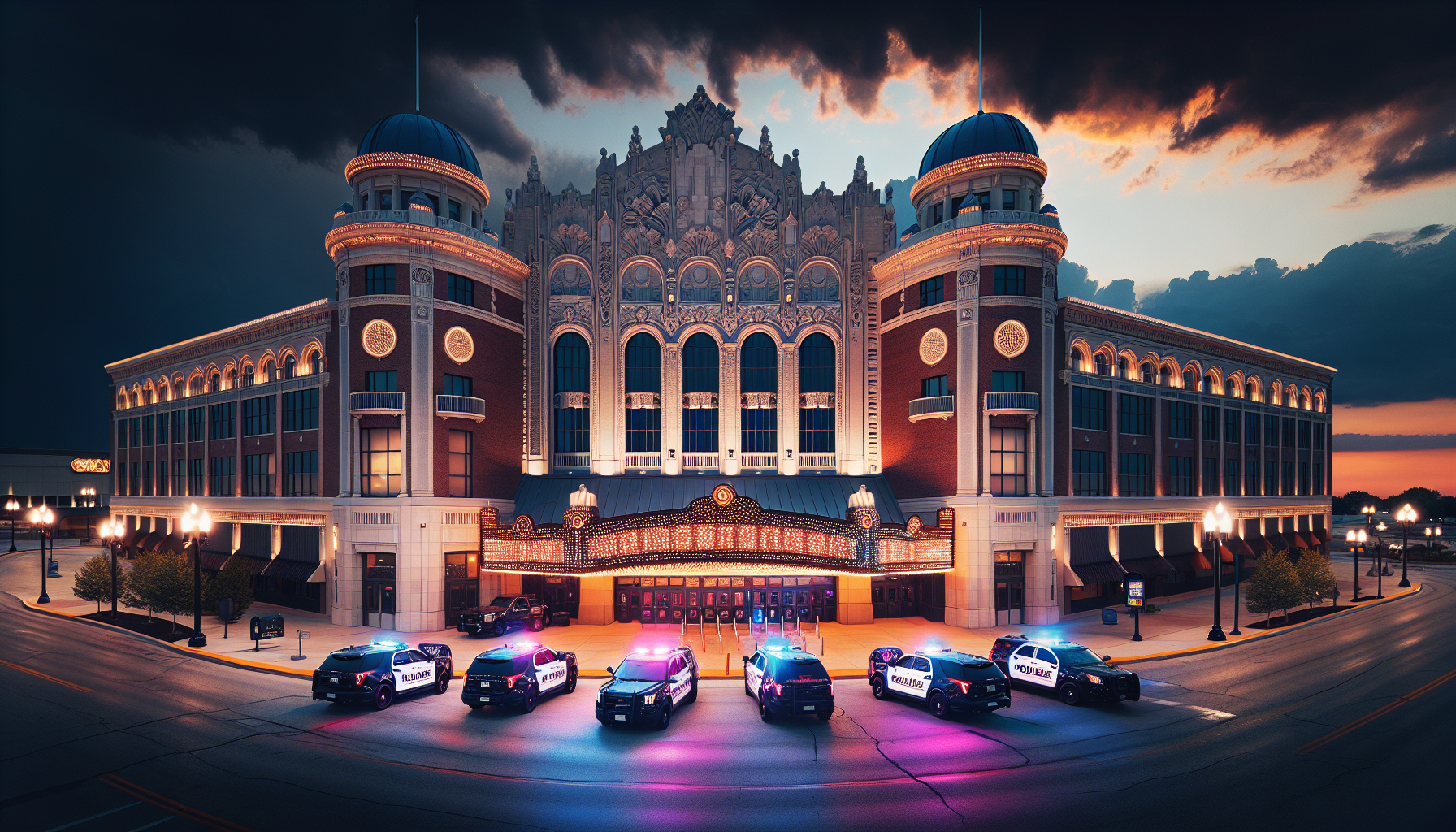In a startling series of events at an Indiana casino, a man wielding a knife was shot by police in a situation that escalated sharply. This incident has brought to light the intensifying need for effective security measures within gambling establishments across the United States. As casinos are places where emotions often run high due to the involvement of money, ensuring the safety of patrons and employees is a priority.
The Casino Incident Overview
The recent incident involved a confrontation at the casino, where reports suggest that a man armed with a knife began acting aggressively. Witnesses noted a tense atmosphere as law enforcement was quickly called to de-escalate the situation. Unfortunately, the rapidly developing events led to the police using lethal force as they perceived an immediate threat to life.
This event underscores the importance of having robust security protocols and trained staff ready to handle unexpected situations. The involvement of law enforcement in such incidents is unfortunately becoming more common, and this can be attributed to several factors including the accessibility of casinos and the wide range of clientele they attract.
Understanding the Role of Casino Security
Casino security teams are trained to manage a variety of situations, but the inclusion of external security forces often becomes essential when there is imminent danger. The tragic situation that unfolded highlights several crucial points:
- Security personnel must be proficient in conflict resolution and de-escalation techniques.
- There is a necessity for clear communication channels between the casino security and local law enforcement.
- Regular training and drills can prepare casino staff for quick and effective responses in high-stakes scenarios.
These strategic points emphasize the need for a holistic approach to security in environments where large groups gather and significant sums of money are involved. External resources such as training programs for crisis situations and policies on policing in gaming venues can be instrumental in improving safety standards.
The Implications and Future Considerations
The ramifications of such an event are widespread. It not only affects those directly involved but can also influence public perception of the safety within these spaces. Going forward, several considerations can help bolster both the real and perceived security of casino environments:
- Enhance technology use in surveillance to detect and preemptively identify threats.
- Adopt advanced screening methods that balance security with customer experience.
- Implement thorough background checks for individuals exhibiting suspicious behavior.
Understanding these aspects can provide a blueprint for other casinos to follow, ensuring they are better prepared to protect their patrons. Additionally, transparent reporting and comprehensive incident reviews can help identify weaknesses in existing systems, facilitating continuous improvement.
Community Engagement and Responsibility
Engaging the broader community in discussions about safety in public venues like casinos is essential. The cooperation between casino operators, local authorities, and community leaders can foster an environment where security is collaborative rather than confrontational. Initiatives can include:
- Regular town hall meetings to discuss concerns.
- Public forums for feedback on security practices.
- Collaborative campaigns to promote awareness and education.
By taking these steps, stakeholders can work collectively towards creating safer environments that are both welcoming to visitors and conducive to economic activity.
Conclusion: Bridging Safety and Experience
This incident at the Indiana casino serves as a wake-up call to the entire industry about the necessity of updated security protocols. Balancing safety with a seamless entertainment experience requires ongoing adjustments and collaboration between all parties involved.
Ensuring safety is a complex and continuous process that must adapt to changing societal conditions and technological advancements. As such, both internal security personnel and external law enforcement must be equipped with the tools and training necessary to maintain order while respecting the ambiance of leisure and recreation that casinos provide.
By addressing these challenges head-on, casinos have the opportunity to enhance their reputation as secure, enjoyable places and reinforce their commitment to patron safety, ultimately benefiting everyone involved.

